Electricity is widely recognized as a serious workplace hazard, exposing employees to electric shock, burns, fire, and explosions. It is known that the human body conducts electricity and if direct body contact is made with an electrically charged part, serious injury can occur.
The most common shock-related injuries are electrical burns. There are three types: electrical, arc flash, and thermal contact. Electrical burns are caused by touching electrical wiring or improper use of electrical equipment. Arc burns are the result of high temperatures produced by electric arcs or by explosions close to the body. While thermal burns are experienced from your skin meeting hot surfaces of overheated electrical conductors, conduits, or other equipment.
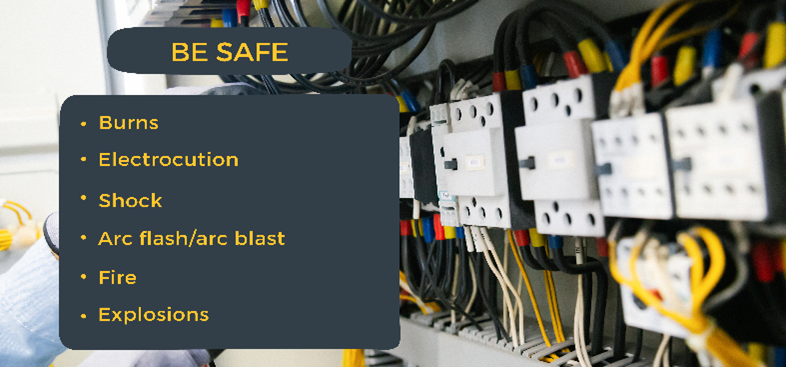
Some Types of Electrical Hazards
- Contact with overhead power lines: Overhead and buried power lines carry extremely high voltage. Risks are electrocution, burns, and falls.
- Contact with energized sources: Major hazards are electrical shock and burns.
- Damaged or bare wires: Fault current may travel through a body, causing electrical burns or death if power supply is not grounded, path has been broken, or there are live parts.
- Power strips being overloaded because of multiple plug arrangement: Most have overload protection but often malfunction causing fire.
Electrical Protection Methods
One common way to protect yourself is to use a ground-fault circuit interrupter (GFCI). They are designed to protect people from shock and detect ground faults. They also interrupt electric currents and limit the duration of the electrical shock.
There are several different types, including cord connected GFCIs, receptacles, and portables. The cord-connected is an attachment plug incorporating the module. While the other two are built into outlets.
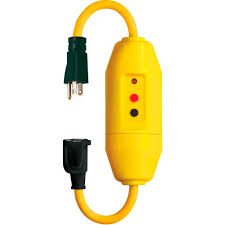
Cord-Connected GFCI

Receptacle

Portable
Conclusion
If you are unsure how to handle exposed electrical wiring, powerlines, or damaged electrical equipment, stop what you are doing! Electricity can be dangerous and must be respected. Always inspect cords, tools, and test GFCI circuits before use. Remember these five safety rules the next time you are dealing with electricity.
- Disconnect completely.
- Secure against re-connection. (Lock Out and Tag Out)
- Verify that the installation is dead.
- Carry out earthing and short-circuiting.
- Provide protection against adjacent live parts.
Safety is an important part of everything we do. Here at Asphalt Materials, Inc. we understand that to succeed, we need to create a culture where everyone can share ideas and have a voice at every level of our company. Through communication, education, and prevention, we accomplish our goal of getting our employees and associates home safely at the end of the day.
Our team of safety professionals host regular meetings, training sessions, and “tool box talks” in order to support an open dialogue where safety is at the forefront of everyone’s mind. This article kicks off our first series of tool box talks that will be live on our website.

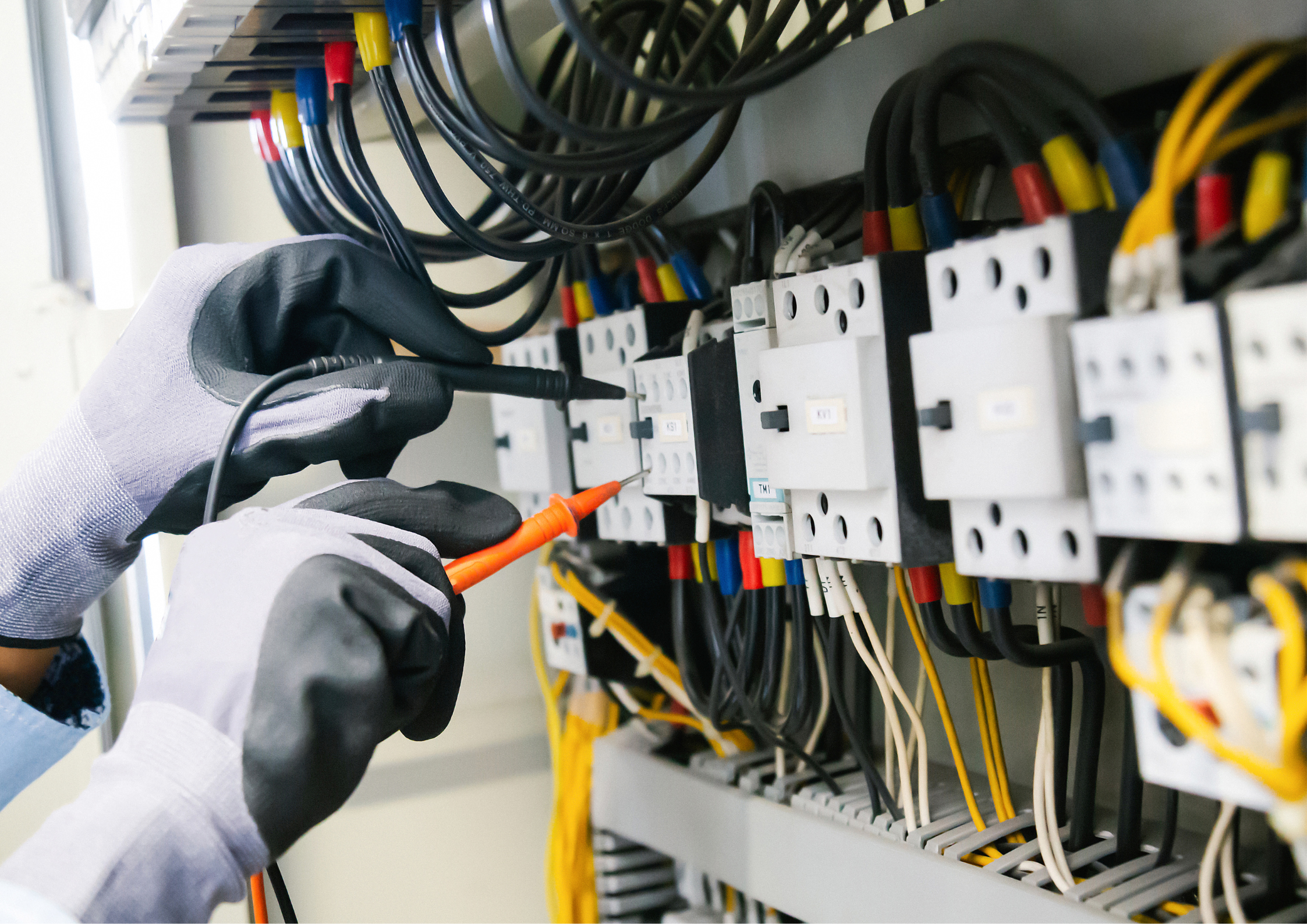




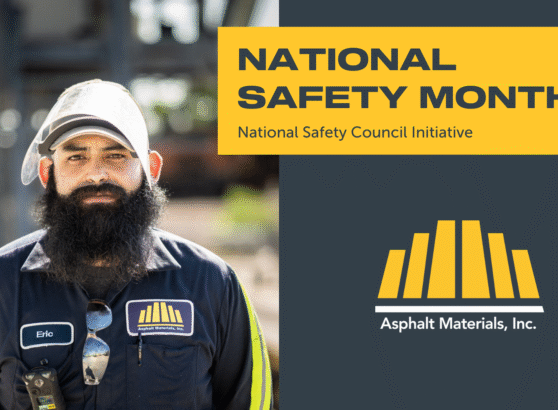


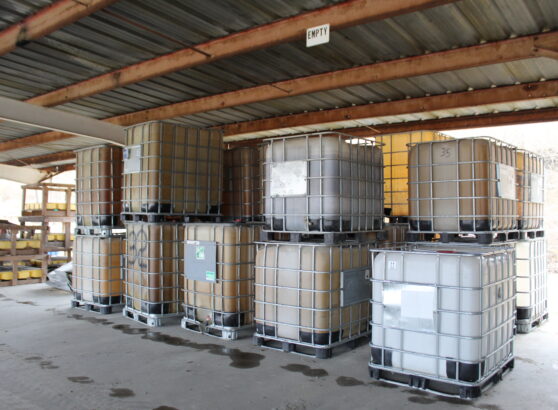






































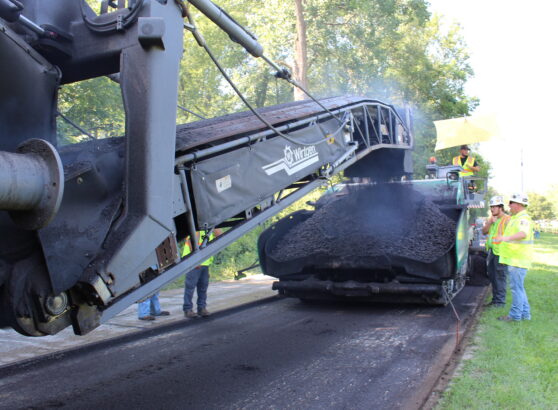






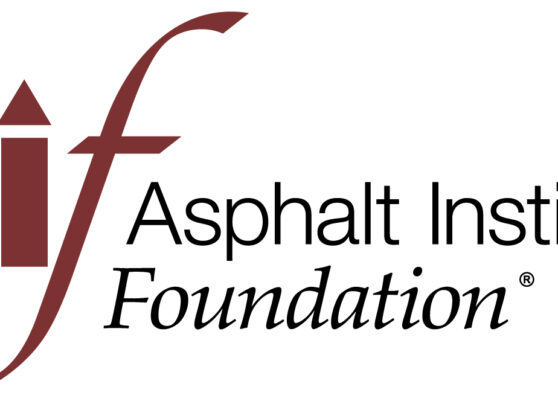

























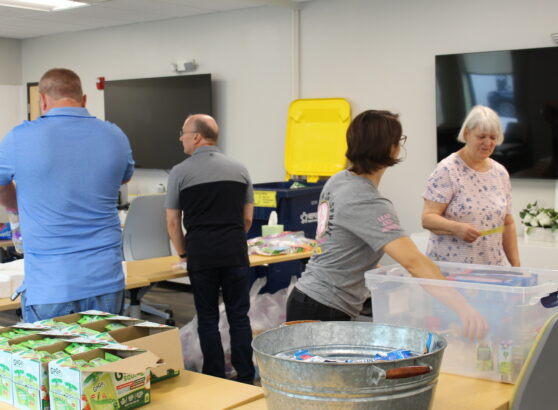

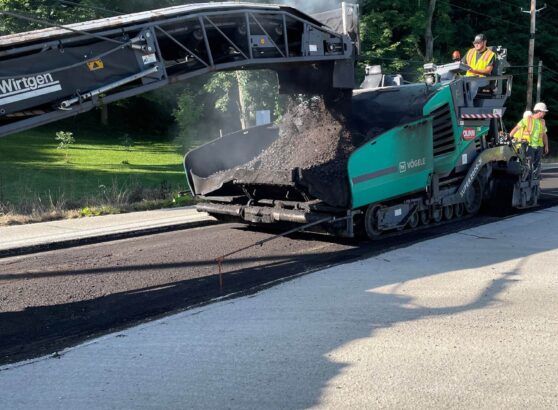



































Recent Comments